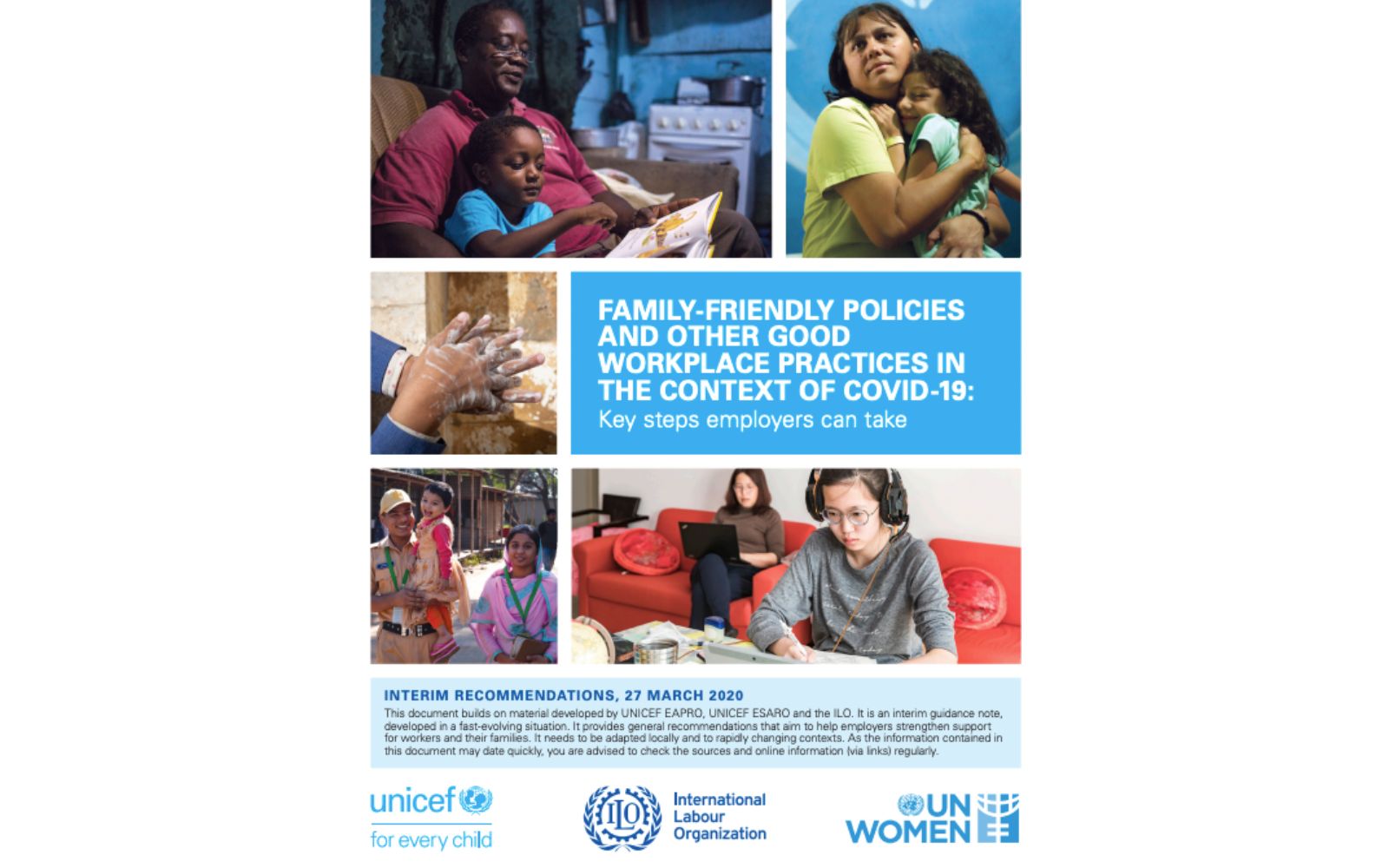With the COVID-19 pandemic having an enormous impact around the globe, many businesses are struggling to stay afloat and many employees are being left with reduced hours or unemployment. Now more than ever, it’s important that employers are supporting their workforce as best they can.
UNICEF’s new guide for employers – ‘Family Friendly Policies and Other Good Workplace Practices in the Context of COVID-19: Key steps employers can take’ – outlines (interim) recommendations for employers to navigate through the negative consequences of COVID-19.
“The COVID-19 crisis is placing Australian families under unprecedented pressure,” says Nicole Breeze, Director of Australian Programs and Child Rights at UNICEF Australia. “And the fallout of the pandemic including financial stress and deterioration of mental health will be felt for years to come. This pressure compounds the strain many Australian families are already experiencing as evidenced by research released by APLEN and Parents at Work late last year.
“Children are uniquely vulnerable, and risk becoming the forgotten victims of the crisis, and it is vital that Governments, businesses, and not for profit organisations take all possible steps to protect them from the most harmful impacts.
In new guidance released today, UNICEF and the ILO are encouraging employers – many of whom are also under enormous pressure themselves – to consider the impact of their business decisions on workers’ families and to support social protection wherever possible.
Family-friendly policies and practices, including employment and income protection, paid leave to care for family members, flexible working arrangements and access to quality, emergency childcare can make a critical difference. They enable workers to protect and care for themselves and their children and enhance workers’ productivity and sense of security.”



